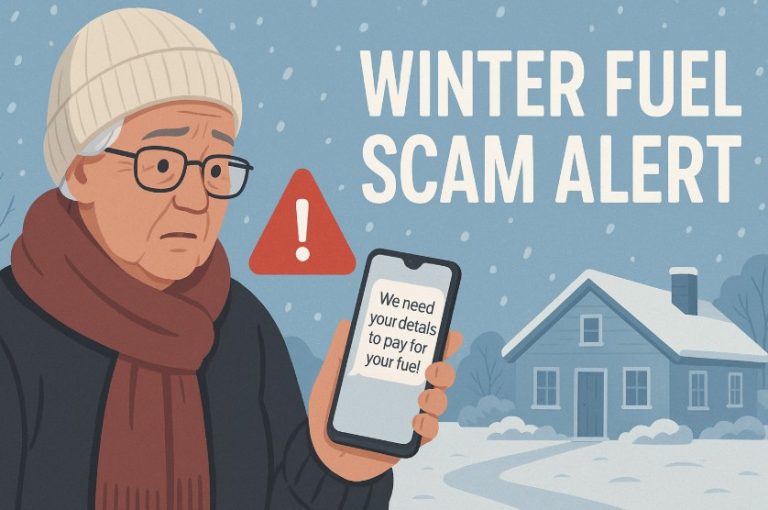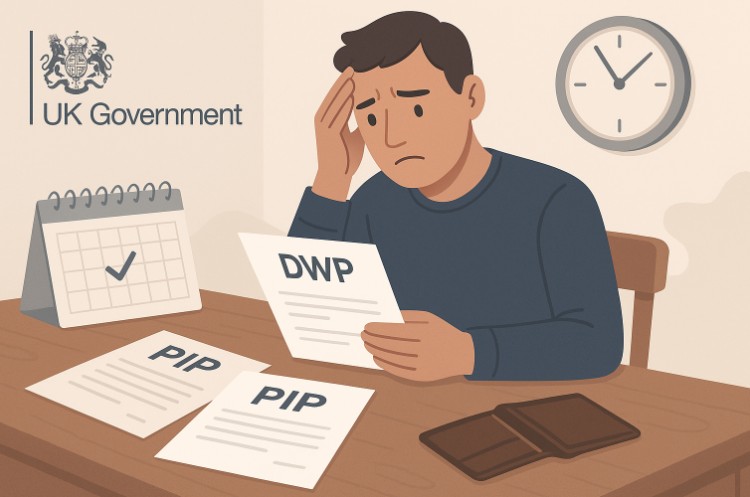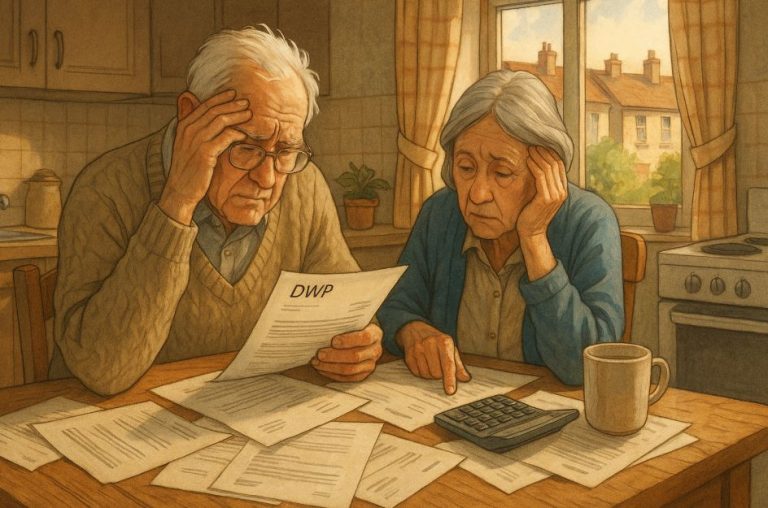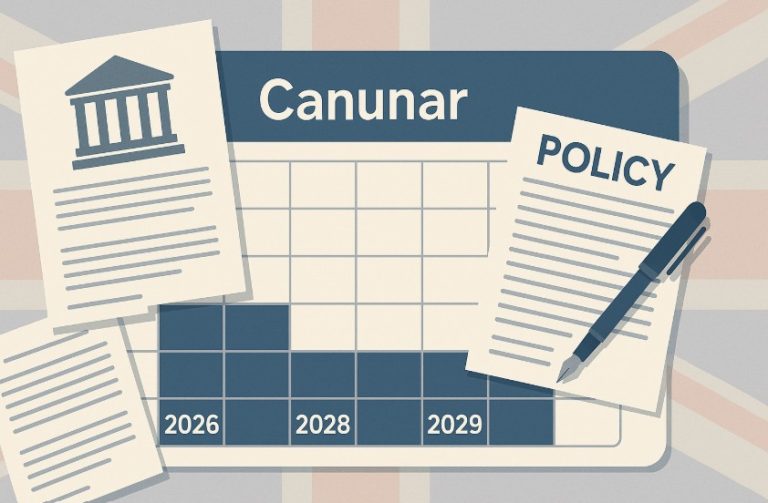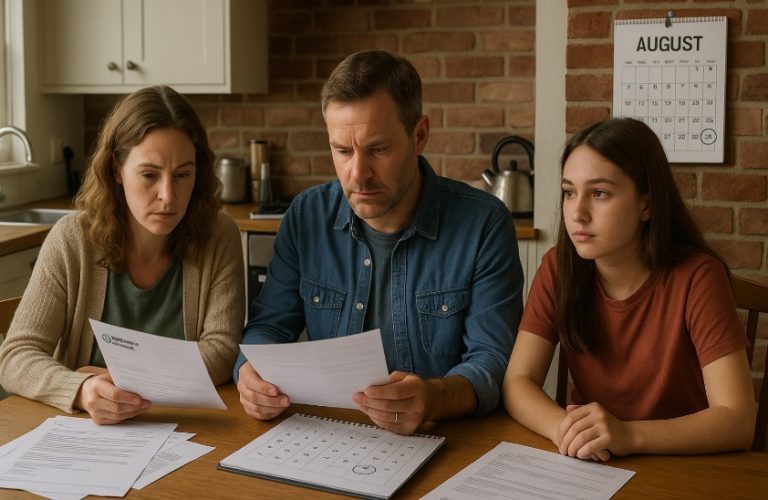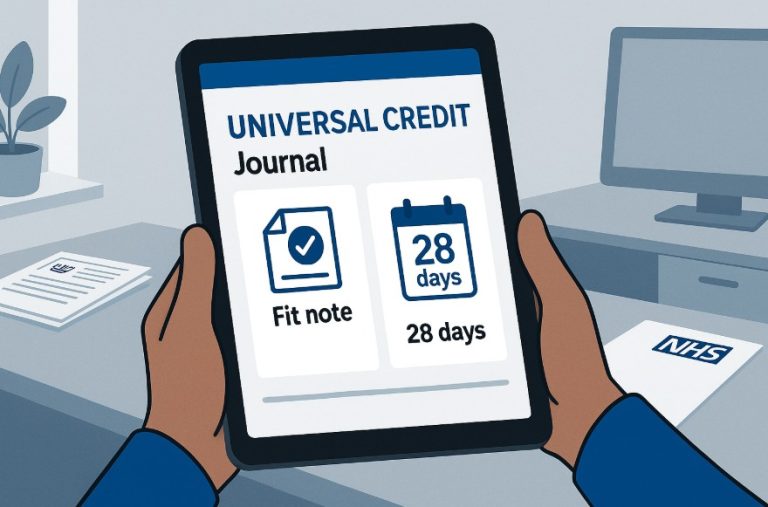As the cost of living remains a pressing concern for millions across the UK, it’s vital for those relying on benefits to be aware of when their payments will arrive, especially around bank holidays.
The Department for Work and Pensions (DWP) adjusts payment schedules during bank holiday periods to ensure no one is left without financial support.
This article covers the DWP bank holiday payment dates for August 2025, outlines which benefits are affected, and highlights additional financial assistance available for low-income households.
Why Do Bank Holidays Affect DWP Payment Dates in the UK?
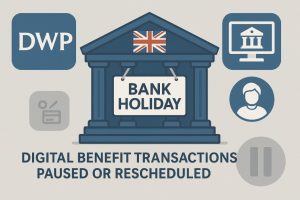
Bank holidays disrupt the normal processing of financial transactions through the banking system.
Since DWP payments are typically issued directly into claimants’ bank accounts, scheduled payments cannot be completed when banks are closed.
To avoid late payments, the DWP reschedules benefit and pension disbursements to the nearest previous working day.
This approach ensures that individuals who depend on these payments for day-to-day expenses do not experience financial difficulty because of calendar disruptions.
What Are the DWP Payment Changes for the August 2025 Bank Holiday?
The August bank holiday in the UK falls on Monday 25 August 2025. If a claimant’s regular DWP payment is due on that Monday, it will instead be issued on Friday 22 August 2025.
This adjustment affects all DWP-managed benefits and pensions that would otherwise fall on the holiday.
These include:
- Universal Credit
- State Pension
- Pension Credit
- Child Benefit
- Disability Living Allowance
- Personal Independence Payment
- Attendance Allowance
- Carer’s Allowance
- Employment and Support Allowance
- Income Support
- Jobseeker’s Allowance
It is important for recipients to check their bank accounts in advance and plan spending accordingly, especially if they are budgeting over several weeks.
Which Benefits Are Affected by the August 2025 Bank Holiday?
Any regular benefit payment administered by the Department for Work and Pensions that is scheduled for 25 August will be impacted. This change applies to a wide range of financial supports provided by the DWP.
Here is an overview of the affected benefits:
| Affected Benefit | Rescheduled Payment Date |
| Universal Credit | Friday 22 August 2025 |
| State Pension | Friday 22 August 2025 |
| Pension Credit | Friday 22 August 2025 |
| Child Benefit | Friday 22 August 2025 |
| Disability Living Allowance | Friday 22 August 2025 |
| Personal Independence Payment | Friday 22 August 2025 |
| Attendance Allowance | Friday 22 August 2025 |
| Carer’s Allowance | Friday 22 August 2025 |
| ESA | Friday 22 August 2025 |
| Income Support | Friday 22 August 2025 |
| Jobseeker’s Allowance | Friday 22 August 2025 |
Those with payment dates outside of the bank holiday will not see any changes.
When Will Pension Payments Be Made in August 2025?
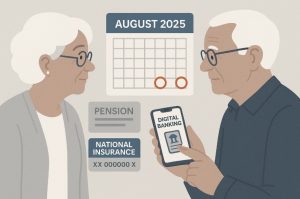
The state pension is issued every four weeks and the actual payment day is based on the last two digits of a recipient’s National Insurance number. The DWP uses this structure to streamline payments across the week.
The table below shows how pension payment days are determined:
| Last Two Digits of NI Number | Payment Day |
| 00 to 19 | Monday |
| 20 to 39 | Tuesday |
| 40 to 59 | Wednesday |
| 60 to 79 | Thursday |
| 80 to 99 | Friday |
Anyone due to receive their pension on Monday 25 August will instead be paid on Friday 22 August due to the Summer Bank Holiday.
How Do Bank Holidays Affect Benefit Payment Dates Across the UK?
When a scheduled benefit payment date coincides with a bank or public holiday, the payment is typically made on the nearest previous working day. This ensures recipients receive their payments without delay due to the closure of banks.
The following table outlines key adjusted payment dates due to UK bank holidays between late 2024 and the end of 2025:
| Original Due Date | Adjusted Payment Date | Region Affected |
| 30 December 2024 | 31 December 2024 | Northern Ireland only |
| 17 March 2025 | 18 March 2025 | Northern Ireland only |
| 18 March 2025 | 19 March 2025 | Northern Ireland only |
| 21 April 2025 | 17 April 2025 | UK-wide |
| 5 May 2025 | 2 May 2025 | UK-wide |
| 26 May 2025 | 23 May 2025 | UK-wide |
| 14 July 2025 | 15 July 2025 | Northern Ireland only |
| 15 July 2025 | 16 July 2025 | Northern Ireland only |
| 4 August 2025 | 5 August 2025 | Scotland only |
| 25 August 2025 | 22 August 2025 | UK-wide |
| 29 December 2025 | 30 December 2025 | Northern Ireland only |
| 30 December 2025 | 31 December 2025 | Northern Ireland only |
These changes help avoid payment issues during national holidays when banks and payment systems may not operate. It’s important to plan ahead if your scheduled date is moved forward, as this may extend the gap until your next regular payment.
Public Holidays in Scotland and Northern Ireland
In some cases, payments may be delayed rather than advanced if your payment date falls on a regional public holiday, particularly in Scotland or Northern Ireland. Banks may be closed locally even if it’s not a UK-wide holiday.
If this happens, check with your bank or building society for the actual date funds will be available in your account.
Local Holidays in Scottish Cities
In certain cities across Scotland, local holidays may also affect when payments are processed. These are not officially recognised across the UK but can impact regional banking operations. Some notable local dates include:
- Glasgow: Local holiday on 29 September 2025
- Edinburgh: Local holiday on 15 September 2025
- Dundee: Local holiday on 6 October 2025
Residents in these areas may experience delays and should confirm payment timelines with their financial institution if their benefit payment coincides with a local holiday.
What Should You Know About Universal Credit and Bank Holidays?
Universal Credit is typically paid on the same calendar date each month. When that date falls on a weekend or bank holiday, the DWP advances the payment to the nearest previous working day.
For those who receive Universal Credit on the 25th of each month, this means an earlier disbursement in August.
This change can affect budgeting, as the interval until the next payment may be slightly longer than usual. It is recommended that recipients adjust their monthly spending to accommodate the altered schedule.
Other details to keep in mind:
- You can check your next payment date through your online Universal Credit journal
- Early payments are not additional; they simply arrive sooner than expected
- No overpayment or deduction is applied as a result of the bank holiday shift
When Will Benefit Rates Increase Again?
Benefit rates across the UK were increased in April 2025 by 1.7 percent, which aligned with the inflation figure recorded in September 2024. This annual adjustment applied to a broad range of working-age benefits.
Increases in April 2025 included:
- Universal Credit standard allowance
- Personal Independence Payment
- Disability Living Allowance
- Attendance Allowance
- Carer’s Allowance
- Employment and Support Allowance
The state pension increased by 4.1 percent under the triple lock mechanism, reflecting wage growth during 2024.
This rise translates into approximately £472 extra per year for full basic state pension recipients.
Looking ahead, the government has announced that from April 2026, Universal Credit will receive yearly above-inflation increases.
However, the health-related element of Universal Credit for new claimants will be reduced from £105 to £50 per month and frozen at that level until 2029.
What Financial Support Is Available Beyond Standard DWP Payments?
There are several additional forms of financial help available for UK residents receiving DWP benefits or struggling to manage household costs.
Budgeting Advance Loans
These loans are interest-free and designed to help claimants manage unexpected expenses such as:
- Repairing or replacing essential household items
- Covering emergency travel costs
- Paying for a one-time need, such as a funeral or moving expenses
Loan limits:
- £348 for a single person
- £464 for couples
- £812 for households with children
As of April 2025, repayments are capped at 15 percent of the Universal Credit standard allowance, a reduction from the previous 25 percent limit.
Discretionary Housing Payment (DHP)
This fund is available to those who receive either Housing Benefit or the housing element of Universal Credit. The local authority makes the final decision on eligibility and amount granted.
The payment can be used for:
- A shortfall in rent not covered by standard housing support
- Rent deposits
- Rent in advance for a new home
To apply, individuals must contact their local council directly.
Household Support Fund (HSF)
The Household Support Fund provides targeted assistance for low-income households. Funds are distributed by local authorities and used to cover basic needs such as:
- Food
- Energy bills
- Household essentials
- Cash support (in some regions)
The government has extended this scheme until March 2026. After that date, the HSF will be transitioned into the Crisis and Resilience Fund, which will also absorb the Discretionary Housing Payment.
Charitable Grants
Many charitable organisations in the UK offer financial assistance to individuals experiencing hardship. These grants are typically awarded based on specific personal circumstances.
Groups eligible for grants may include:
- Disabled individuals
- Carers
- Bereaved families
- Students
- Low-income single parents
Turn2us offers a grant search tool to help individuals identify financial assistance for which they may qualify.
Support from Energy Providers
A number of major energy companies in the UK have hardship support schemes in place. These are designed to help households who are unable to keep up with utility bills.
Support may come in the form of:
- Debt write-offs
- One-off grants
- Reduced tariffs
Providers offering such support include British Gas, E.ON, EDF, Scottish Power and Octopus Energy.
Council Tax Reduction
Council tax support is available for low-income residents or those receiving DWP benefits. Depending on the council, applicants may receive:
- Up to 100 percent discount on council tax
- Partial discount based on income and household circumstances
- Discretionary reductions for those experiencing financial hardship
Applications should be made through local councils, usually via their websites.
What Are the Latest Changes to Free Childcare Entitlements?

Free childcare support in the UK has expanded in phases, with the most recent change scheduled for September 2025. All working parents with children under the age of five will become eligible for 30 hours of free childcare per week.
Here is a timeline of recent expansions:
| Date Implemented | Change Introduced |
| April 2024 | 15 free hours for 2-year-olds |
| September 2024 | 15 free hours for children aged 9 months+ |
| September 2025 | 30 free hours for all children under five |
Parents must re-confirm their eligibility every three months. Additional support is available through the Tax-Free Childcare scheme, which refunds 20 pence for every 80 pence spent on approved childcare, up to £500 per quarter.
Will the Energy Price Cap Be Reduced in Late 2025?
The energy price cap set by Ofgem was lowered to £1,720 for the period between July and September 2025. This represents a 7 percent reduction from the previous level of £1,849 and brings some relief to UK households amid ongoing cost pressures.
The energy price cap limits the maximum unit cost of gas and electricity for customers on a standard variable tariff. It is not a cap on the total bill but is based on the typical usage of an average household. Households using more energy will pay more, and those using less will pay less.
Are There More Cost of Living Payments Coming in 2025?
There are currently no confirmed plans from the Department for Work and Pensions to continue the Cost of Living Payment scheme that was in place between 2022 and 2024. The last payment, worth up to £299, was issued to eligible households between 6 February and 22 February 2024.
While there have been calls to reintroduce the scheme in light of ongoing economic pressures, any new announcements will likely be made during future budget statements or government updates.
Where Can You Find Mental Health Support While Managing Benefits?

Navigating the benefits system can be a source of stress and anxiety, particularly during economic uncertainty. Several UK organisations provide mental health support for those struggling:
- Samaritans offers 24/7 listening support via phone and email
- Mind provides mental health advice and information lines
- Scope hosts a peer support forum for people with disabilities
- NHS England offers online triage services for mental health support
These services are free and confidential, and many offer help specific to financial stress and welfare concerns.
FAQs About August 2025 DWP Payment Dates and UK Benefits
What happens if my DWP payment is delayed due to a bank holiday?
Most payments are made earlier than usual before a bank holiday. If you haven’t received it by the adjusted date, contact the DWP immediately.
Will Universal Credit always be paid early on bank holidays?
Yes, when your normal payment date falls on a bank holiday, Universal Credit is typically paid on the preceding working day.
Can I apply for a Budgeting Advance Loan more than once?
Yes, but you must repay the first loan or meet eligibility again before reapplying.
What support is there for disabled benefit claimants?
Support includes PIP, DLA, charitable grants, and Scope’s online community. You may also qualify for Council Tax Reduction.
How can I check when my next pension payment is due?
Your National Insurance number determines your payment day. Use the DWP schedule or contact your pension provider directly.
Is the Household Support Fund available in Scotland and Wales?
Yes. Although delivery methods vary by region, the HSF is available across the UK.
Will the DWP inform me of payment changes automatically?
Usually, no direct notification is sent. You should regularly check your Universal Credit journal or the gov.uk website.

